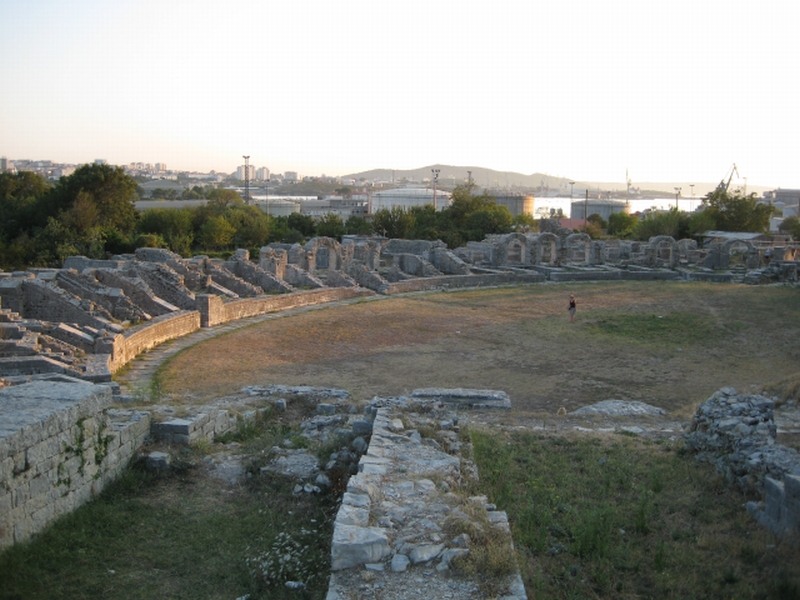In 284 AD, the army proclaimed Gaius Valerius Aurelius Diocletian (284 – 305 AD) for Roman Emperor. He was one of the most famous Roman Emperors. Diocletian was the son of Illyrian freed slave, and he was born near Salona (today’s Solin) in Dalmatia. As a young man, Diocletian joined the army and he achieved a successful military career. He received the highest military ranks and honors, and soldiers respected him for his courage and determination.
Diocletian was fully aware that the situation in the Roman Empire required a firm and authoritarian rule. Therefore Diocletian from the beginning decided to break all strings attached to Octavian Augustus tradition and he turned towards eastern absolute monarchy. He was surrounded with enough pomp and glitz to impress everyone. Diocletian did not pretend to be a “first citizen”, but he openly showed authority. He gave himself tittle “Dominus et Deus” (Master and God), and the whole system was called the Dominus.
Diocletian realized that the fundamental problems of the Empire went beyond the power of one man, so he appointed fellow officer Maximian, co-Emperor in 286 AD.
Diocletian divided the empire into eastern and western part. In order to prevent further fighting for power, he created a new system of inheritance, therefore he and Maximian selected two other co-rulers that should succeeded them on the throne. Diocletian and Maximian were appointed Augustus and their heirs and co-rulers had the title of Caesar. Such a separation of powers among the four Emperors was called tetrarchy.
Diocletian managed to fix a problematic situation at the borders by reforming the army. He took an army from the authorities of the Provincial Civil Commander, and he formed the border troops and mobile units, which were easily moved from one side of the Empire to the other.



On the economic front, Diocletian failed to be so effective. He tried to solve the Roman crisis by introducing new taxes – land taxes, capitation and most controversial reform – The Edict on Maximum Prices. This edict determined the highest price for certain products, which wanted to prevent uncontrolled price rises, but this measure could not quite succeed, because the Laws of the market simply could not tolerate such Laws.
During reign of Diocletian was conducted the systematic persecution of Christians which did not want to accept sacrifices to the Emperor as a deity. This attitude of Christians Diocletian realized as threat to the imperial authority. That is the reason why Diocletian and his co-rulers launched persecution in which they killed many Christians throughout the Empire. Diocletian ended persecutions very disappointed by the fact that his wife and daughter, and a large part of his entourage were Christians. Diocletian retired to his palace in Dalmatia. He lived on for three more years, spending his days in his palace gardens. He died in 311 AD.
